
views
Dealing Emotionally

Set ground rules concerning how you and your parents will live together. You’ll need to create a new family dynamic in your household that acknowledges your new living arrangement without treating your parents as house guests. Set rules regarding daily household activities that will need to be adjusted under the new arrangements, such as eating dinner together, spending time out of the house, or watching television. For example, your schedule may not accommodate being able to sit down to dinner every night, while your parents may want to have meals together as a family each night. In this type of situation, you’ll need to set rules regarding how often your family eats meals together versus on their own and stick to them once they’re set. Be prepared to adjust the rules as necessary if your parents are facing an illness that may get worse over time.
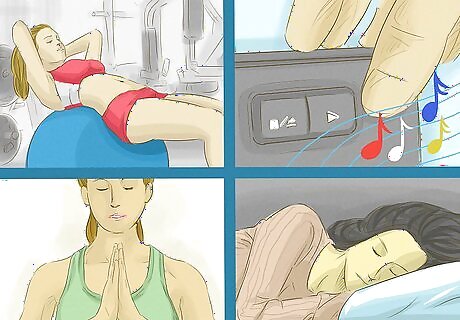
Be willing to put yourself first from time to time. You can’t be an effective caregiver if you’re not also taking care of yourself. Keep an eye on your own mental and emotional health and ask for help from someone else when caregiving is taking too much of a toll on you. Make sure you’re taking care of your own physical health by eating healthy foods, drinking enough water each day, and getting adequate sleep each night. Remember, your parents probably would want you to take care of yourself and your own needs more than anything else. Look for support groups at aging resource centers. These groups can offer encouragement as well as share resources and ideas to make caregiving easier.
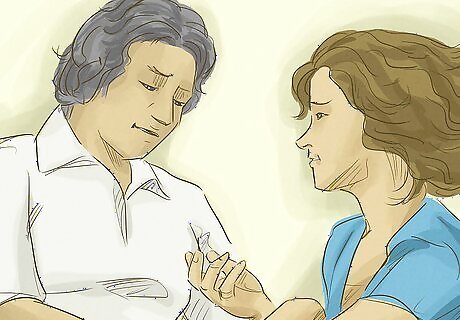
Don’t expect gratitude or praise if your parent has dementia. If one or both of your parents has dementia, they may not realize all that you’re doing to care for them, leaving your hard work unappreciated. Avoid letting this demoralize you by recognizing that it isn’t a reflection on you personally, but rather a symptom of their condition.

Give yourself a break when you need it to avoid burnout. Ultimately, being a caregiver for elderly parents is a marathon, not a sprint. To avoid burning out from your caregiving responsibilities, keep an eye on your own feelings and take a break from caregiving when it gets to be too much. Signs that you may be about to have a burnout include insomnia, irritability, apathy, change in appetite, and feelings of guilt. You might consider placing your loved one in a senior living community for a few days when you need to take a break from caregiving. If you don’t want to have them leave the house, you can also ask a friend or family member to take over your responsibilities while you leave for a short period of time to relax.
Establishing a Care Network

Recognize what your limitations are and where you need outside help. Taking care of elderly parents often takes a significant toll on their caregiver children. No matter what you think about yourself, there’s a good chance you’ll run into your own limitations when it comes to caring for your parents. If this happens, recognize that there are some things you can’t do alone and take steps toward getting the help you need. For example, you may find that you’re uncomfortable with helping your parents bathe and clothe themselves. It’s perfectly normal to feel this way; however, you’ll ultimately need to find a way to have someone else help your parents.

Identify friends and family you can ask for help when you need it. When you feel close to burning out, you’ll need to be able to call on someone who can take over your caregiving responsibilities for a short time so that you can relax. Talk to friends and family and identify people who would be willing to help you when you need to take time to yourself. Once you’ve identified people you can call on for help, keep their numbers stored in your phone so you can call them the moment you need to. When asking friends and family if they’d be willing to help you care for your parents, be honest about what that entails. They may become angry and resentful if they feel you misled them about what they would have to do to help you.
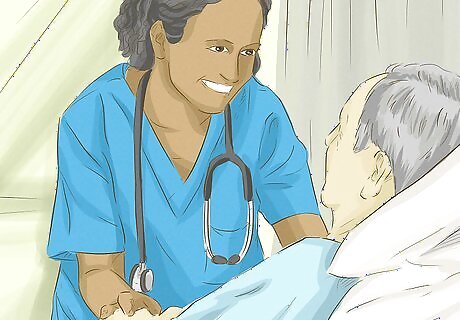
Hire a licensed nursing assistant who can handle medical issues. If your elderly parent is ill and experiencing symptoms or limitations that you’re not qualified to deal with, you need to find a medical professional who can. Home health care aides with medical training can be hired through home health agencies or freelance. Although there are many different types of home health care aides, only those who have received medical training and licensing are qualified to assist you in caring for your parents’ medical needs.

Seek out legal assistance in getting your parents’ affairs in order. Your elderly parents may have unresolved financial issues or important documents (e.g., wills) that will need to be put in order once you begin caring for them. Hire a lawyer that specializes in elder law to get the best professional help in dealing with the legal issues surrounding caregiving. Look for financial resources through Medicare or Medicaid to help you get medical equipment in your home or “adult babysitting” services. Elder law attorneys will also be able to help you navigate medical laws and may even find ways for you to take advantage of assistance programs offered by the state. In some cases, you may need to have power of attorney to handle your parents’ affairs. If your parents are no longer considered competent, an elder law attorney can help you gain power of attorney status. Check your state’s requirements for any necessary paperwork or documentation that needs to be completed before your parents move in with you. These documents may include medical orders, advance directives, or living wills.
Attending to your Parents’ Needs

Stock up on and cook foods that meet their dietary needs. As your parents age, they may be required to eat or avoid certain foods in response to a chronic illness, or they may simply not be physically able to cook and eat for themselves. In these scenarios, make sure you’re able to provide for your parents by cooking healthy meals for them and feeding them if necessary. If one or both of your parents has a medical condition that requires them to adhere to a certain dietary regimen, talk to their primary physician to determine what dishes or meals they should be eating (or not eating) in your home. If there’s a food that one or both of your parents absolutely should not have, avoid buying it or keeping it in your house at all.
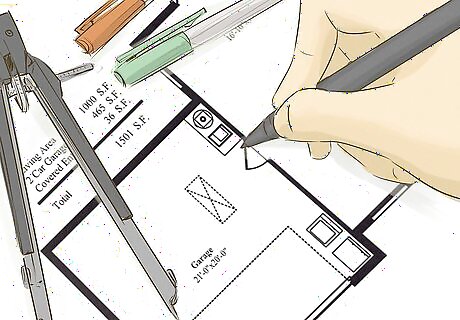
Make your home more accessible if your parents have mobility issues. You may need to invest in accessories or improvements to your home, such as a stair lift or reachers, in order to make it easier for your parents to get around. Other devices that might be helpful for people with mobility issues include dressing aids, uplift seats, and in-bed bathing systems. Check for financial assistance programs through aging communities or Medicare/Medicaid. There are a number of technological devices that can help address a wide variety of potential limitations your parents might have, including hearing aids for those with partial hearing, arthritis aids, chair cushions, and electronic alert systems.
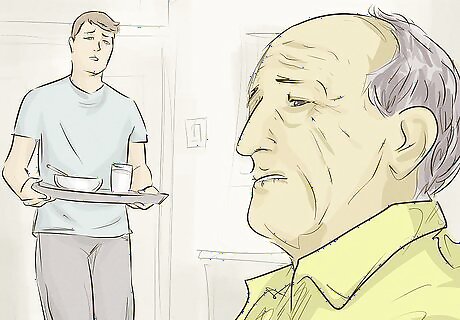
Assist your parents in performing activities of daily living as needed. Your primary goal as a caregiver for your elderly parents, beyond addressing medical needs, will be helping them perform those behaviors essential to daily life, known as Activities of Daily Living (ADLs). These may include self-feeding, bathing, mobility, and attending to personal hygiene. Examples of ADLs that are less essential but which you may also need to assist your parents with may include shopping, managing money, and taking their prescribed medications. Helping your parents perform ADLs not only takes care of their physical health, but also ensures their emotional well-being and their ability to live in dignity.
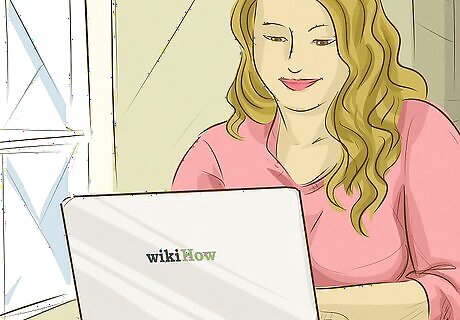
Look for government assistance you or your parents may be eligible for. There are a number of benefits and means of financial support provided by the government that are intended to support caregivers and those in need of care. Do some research on government websites to find out if you or your parents qualify for such benefits. If you live in the United States, the best website to go to for finding such benefits is benefits.gov.

Ask for professional help when you need it. When it comes to caring for your parents, you may come to a point where you find you’re simply not able to provide everything that they need. At that time, reach out to a professional caregiver or home health care aide to get the help you need. Even if you feel that because they’re your parents, you should be the one to take care of them, you still need to call on professional help if you find you need it. Remember, your parents’ health is far more important than your personal pride. Note that your parents may initially resist having a professional caregiver brought in to the care for them. You may have to coax them into accepting the outside help.




















Comments
0 comment